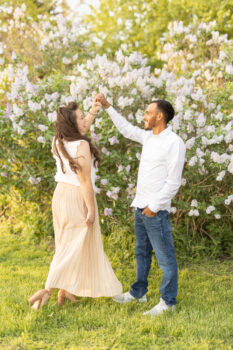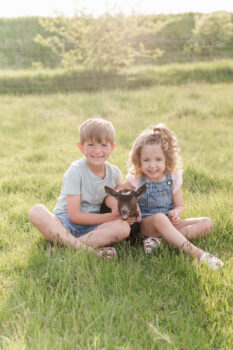
Photography Instructor Aliva Schuring
Note: This interview has been edited for length and clarity.
What brought you to DMACC? What was the draw?
What brought me to DMACC at the very beginning, as a student, I grew up in the Des Moines area and Ankeny was an easy place to commute to, I wanted to go to DMACC before I went for a four-year program. The Vet Tech program brought me here since I heard they had a good program. I was into Animal Science in High School, and I had to be on a waitlist to get into the program here so while I was waiting, I took a few photography classes, and I loved it. I ended up just going with photography for the rest of my career. I never actually went to the Vet Tech program. That’s what brought me to DMACC before I went to Iowa State for business. After I had my business for a few years the head of the Photography program reached out to me and asked me if I wanted to come back and teach in the same program I went to school for.
So, what’s the difference between being a Vet Tech and a Photographer, what drew you to one over the other?
I’ve always loved to take pictures, I’m an introvert, and my sister is an extrovert. She always said, “Oh, take pictures of me”. So, I’ve always been into photography, but I never thought of it as a full-on career growing up, but when I was little, I got one of my pictures in the Iowa State Fair when I was like five, which my family thought was cool, so it was always in the b
ack of my mind but I was never serious about it. Since my step-sister is a Vet Tech, I saw that as a career. I’ve always really been into animals, I love animals so much, so that’s what got me thinking about it. Then when I got into High school, I volunteered at the Iowa State Fair at the Animal Learning Center, I also worked at a Vet clinic as a kennel assistant. I always thought I would do something with animals, but I have a fear of needles, So I sat down, and I thought, I don’t think I can be around needles, day in and day out for my job. I took a tour of the photography program and I saw all the amazing stuff we had here. I thought I might as well try it out while I’m waiting anyway.
 Changing gears a bit, what’s it like to own your own business?
Changing gears a bit, what’s it like to own your own business?
It’s a lot different than you’d expect. You must be very disciplined; no boss is going to tell you, “This needs to be due,” so you must go above an
d beyond for your clients. A lot of the time, you don’t get that recognition, day in and day out, or that promotion or employee of the month. You don’t have coworkers, so that’s probably the most different for me. I like to talk on the phone to my other business friends, they’re sort of like coworkers. You must be stricter when it comes to d
eadlines, working weekends and you must make those sacrifices to work and get things done instead of checking out at 5 o’clock. You always feel like you must do something. You wear all the hats; you must do everything. Taxes, marketing, managing your money. So, build those connections when you’re in school so you can have people to talk to about those things.
What’s your biggest challenge that you’ve faced so far and what are you looking for in the future? What’s your next step for both your business and beyond?
Probably figuring out exactly who my target audience is. It’s always changing and getting that so dialed in so that I can direct the marketing to that person I want to work with. Instead of attracting the masses. You want to attract the person you want to work
with. I’d also say charging too little too early on. I experienced a lot of burnouts doing that. I would take in a lot of clients at a lower session cost and during the busy season, I would be so burnt out, having so much going on. I learned throughout the years that you must increase your prices; you don’t want to say they cost an arm and a leg, but you can’t be cheap forever. Increasing prices helped me a lot.

Photo by Aliva Schuring
Any other pieces of advice or things you want to say?
Find people you can talk to about business stuff; in the photography program, once you graduate, your family doesn’t know about photography, your friends don’t know about it, and you can’t talk to them in the same way. I met one of my best friends in this photography program and I still talk to her about Photoshop questions and business stuff. You learn things from each other, so I’d say find someone you can talk to because when you graduate you don’t have anybody.
Also, get a lot of experience early on. Try to photograph anything and everything in all different lighting situations. If you ever want to have weddings, that’s the ultimate test. Or, when it’s dark, when there’s hard lighting, tough spaces, and wrangling a lot of people. So just capture everything that you can in all different situations, and it will make you a better
photographer. It will help you handle situations better. You will grow a lot more instead of just taking your camera out for a session once a month. Try to take it out when you’re going somewhere on the weekend or doing location scouting, different times, different days, it helps because the light’s different as well.





Comments